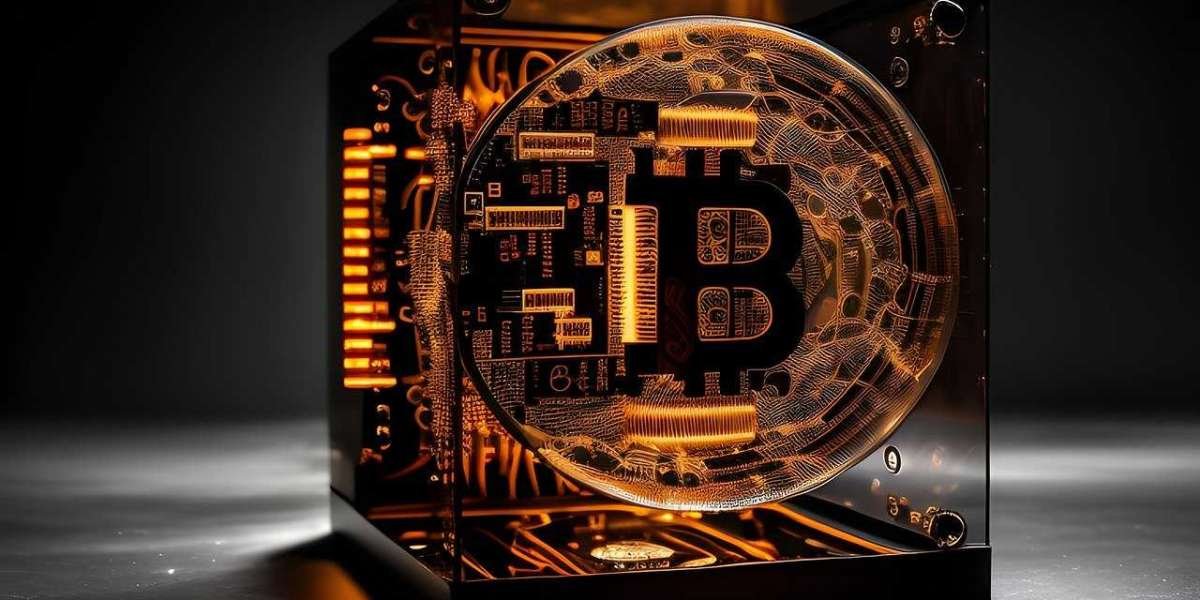As Bitcoin continues to gain mainstream adoption, the importance of securing your digital assets has never been more critical. Whether you're a seasoned investor or just entering the crypto world, safeguarding your Bitcoin requires more than just choosing any wallet. With cyber threats becoming more sophisticated, selecting the most secure crypto wallet and practicing robust security habits is essential for protecting your investments. This article outlines essential wallet tips every investor should follow to keep their Bitcoin safe.
1. Choose the Right Wallet Type
The first step in securing your Bitcoin is understanding the different types of wallets available:
Hot Wallets: These are connected to the internet and include mobile apps, desktop programs, and web-based wallets. While convenient, hot wallets are more vulnerable to online threats.
Cold Wallets: These are offline storage solutions like hardware wallets and paper wallets. They are often considered the most secure crypto wallet options because they are not exposed to constant internet access, reducing the risk of hacks.
For long-term holders or investors with significant funds, using a cold wallet is highly recommended.
2. Use a Hardware Wallet
Hardware wallets such as Ledger Nano X, Trezor Model T, and similar devices are physical devices that store your private keys offline. These wallets are designed with strong security protocols and are widely regarded as the most secure crypto wallet choices in the industry.
Even if your computer is infected with malware, a hardware wallet ensures that your private keys remain isolated from potential threats. Always buy your hardware wallet directly from the manufacturer or a trusted reseller to avoid tampered devices.
3. Enable Two-Factor Authentication (2FA)
If you're using a hot wallet or exchange-based wallet, make sure to enable 2FA for an added layer of protection. Two-factor authentication requires you to verify your identity through a second method—usually a mobile app like Google Authenticator or Authy—before accessing your account.
This significantly reduces the risk of unauthorized access, even if someone obtains your password.
4. Secure Your Recovery Phrase
When you set up a wallet, you’re given a 12 or 24-word seed phrase that allows you to restore your wallet on any compatible device. If this phrase falls into the wrong hands, your funds can be stolen—even if your wallet is otherwise secure.
Tips for securing your recovery phrase:
Never store it digitally (e.g., in cloud storage, email, or text files).
Write it down and store it in a fireproof safe or a safety deposit box.
Consider using metal seed storage devices that can withstand fire and water damage.
5. Keep Software Up to Date
Whether you’re using a desktop, mobile, or hardware wallet, always keep the software updated. Developers regularly release updates to patch security vulnerabilities and enhance performance. Delaying updates may expose your wallet to known exploits.
In addition, always download software from the official source to avoid counterfeit versions loaded with malware.
6. Avoid Public Wi-Fi When Accessing Your Wallet
Public Wi-Fi networks are notoriously insecure and can be a hotspot for cybercriminals looking to intercept sensitive data. Avoid using your crypto wallet while connected to public networks. If necessary, use a trusted VPN to add a layer of encryption to your internet activity.
7. Consider a Multi-Signature Wallet
Multi-signature wallets require more than one private key to authorize a transaction. This setup is especially beneficial for businesses or individuals who want an added level of security.
For example, you could require two out of three signatures (yourself, a partner, and a backup key) to approve any Bitcoin movement. Multi-signature wallets add an extra layer of protection against unauthorized transfers, making them an excellent choice for investors holding large amounts of crypto.
8. Choose a Trusted Wallet Provider
When selecting a wallet, opt for one that has a strong track record of security and transparency. Look for wallets that have undergone independent security audits, are open source, and are recommended by reputable members of the crypto community.
Some of the best options include:
Ledger – Popular hardware wallet known for robust security features.
Trezor – Another leading hardware wallet with open-source software.
Exodus – A user-friendly hot wallet with strong encryption.
Electrum – A lightweight desktop wallet known for advanced features.
If you're using a mobile device, search for the best crypto wallet app with a high rating and positive user reviews. Make sure it offers encryption, backup features, and strong user authentication.
9. Don't Share Your Wallet Info
While it might seem obvious, it's worth repeating: never share your private keys, seed phrase, or wallet access credentials with anyone. Be cautious of phishing scams, fake customer support agents, and suspicious links or apps.
Scammers often impersonate wallet providers or exchanges to trick users into revealing sensitive information. Stay vigilant and always verify sources before responding.
10. Regularly Review Your Security Practices
The crypto landscape is constantly evolving, and so are the tactics of cybercriminals. Take time every few months to review your wallet’s security settings and update your practices if necessary. Staying proactive can help you avoid costly mistakes.
Final Thoughts
Securing your Bitcoin is a continuous process that goes beyond just choosing a wallet. While selecting the most secure crypto wallet is a vital first step, practicing good digital hygiene, protecting your private keys, and staying informed about security threats are equally important. By following the tips above, you’ll be better equipped to protect your digital assets and navigate the crypto world with confidence.
Whether you're a beginner or an advanced investor, making security a priority will ensure your Bitcoin holdings remain safe now and in the future.








